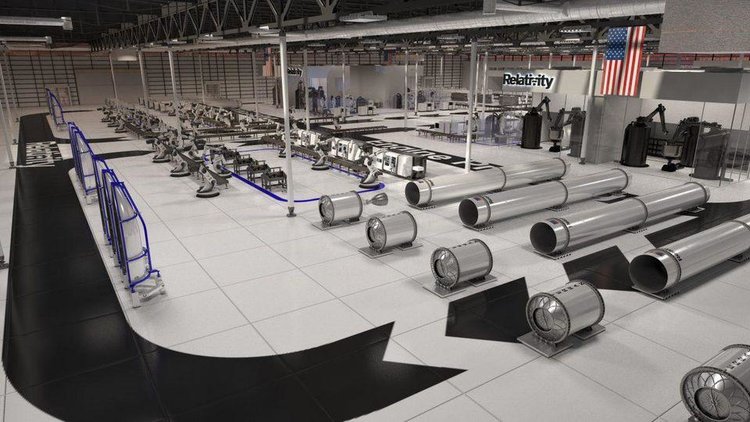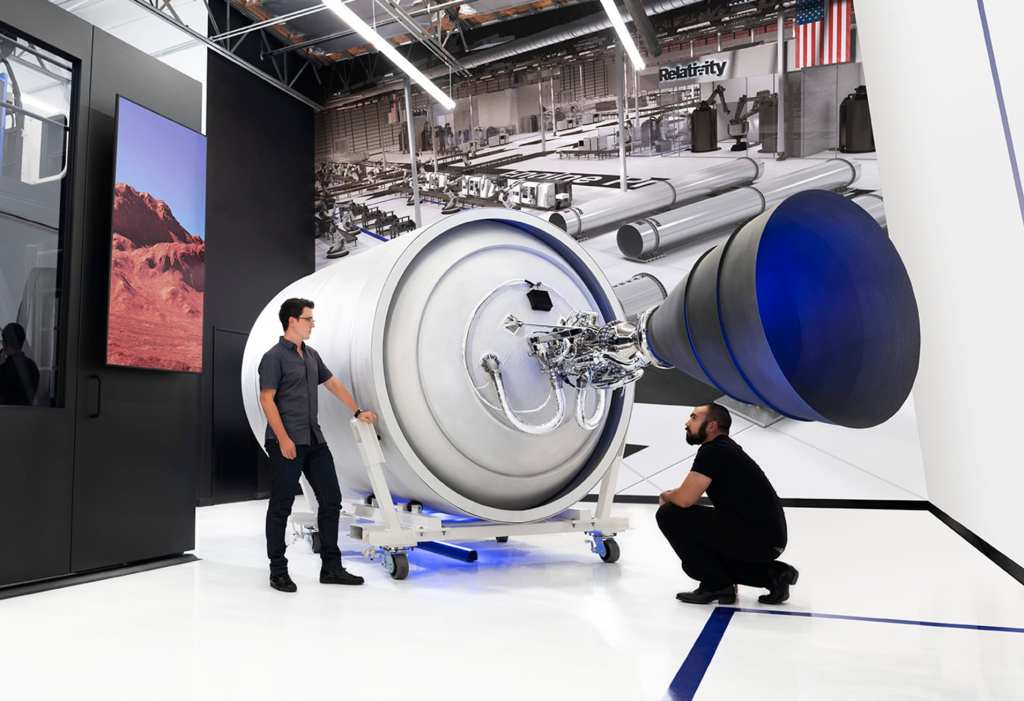The private launch market is an area of a lot of focus in the emerging space startup industry, not least because it unlocks the true potential of most of the rest of the market. But so far, we can count on one hand the number of new, private space launch companies that have actually transported payloads to orbit. Out of a number of firms racing to be the next to actually launch, LA-based Relativity Space is a prime contender, with a unique approach that could set it apart from the crowd.
I spoke to CEO Tim Ellis about what makes his company different and about what kind of capabilities it will bring to the launch market once it starts flying, something the company aims to do beginning next year. Fresh off a $140 million funding round in October 2019, Relativity’s model could provide another seismic shift in the economics of doing business in space, and has the potential to be as disruptive to the landscape — if not more so — as SpaceX.
“We built the largest metal 3D printers in the world, which we call a ‘Stargate,’ ” Ellis said. “It’s actually replacing a whole factory full of fixed tooling — and having all of our processes being 3D printing, we really view that as being the future because that lets us automate almost the entire rocket production, and then also reduce part count for much larger launch vehicles so our rocket can carry a 1,250-kg payload to orbit.” Because Relativity Space’s launch vehicle is nearly 10 times larger than those made by Rocket Lab or Orbex, “it’s a totally different payload class.”
That difference is crucial, and represents the paradigm shift that Relativity Space could engender once its products are introduced to the commercial market. The company knows first-hand how its approach fundamentally differs from existing launch providers like Blue Origin and SpaceX — Ellis previously worked as a propulsion engineer at Blue Origin, and co-founder and CTO Jordan Noone worked on SpaceX’s Dragon capsule program. Ellis said Relativity’s approach won’t just unlock cost savings due to automation, it will also provide clients with the ability to launch payloads that weren’t possible with previous launch vehicle design constraints.
“If you actually look at it on a dollar-per-meter cubed basis — so volumetric instead of just dollar-per-kilogram, and even dollar-per-kilogram, really at our pricing — we’re actually way more competitive, because once you add that rideshare model and a larger rocket, you also have to add something like Momentus or another in-space tug for the last-mile transportation, and that takes up mass and volume and costs extra, too.”
Ellis is referring to an entirely different, but analogous last-mile transportation problem to the one faced by terrestrial logistics companies. Rideshare models see small satellites from a wide variety of different clients pooled together, with the companies behind the various payloads splitting the cost of the ride to make it more affordable for each.
But once in orbit, they’ll have different final target locations for deployment, as they’ll all operate in different regions of space, according to their individual specific missions. Because the rocket Relativity Space is developing will be able to carry not only more weight, but payloads with physically larger dimensions than existing spacecraft, they can pack in a range of small satellites, along with the so-called “tug” needed to get them to their desired orbit.
 “We’re really targeting this very low-dollar per volume, because we’ve seen satellites be limited more by the physical size that they can fit, even more than the weight, which isn’t widely talked about,” Ellis said. “But talking to customers, it was very apparent.”
“We’re really targeting this very low-dollar per volume, because we’ve seen satellites be limited more by the physical size that they can fit, even more than the weight, which isn’t widely talked about,” Ellis said. “But talking to customers, it was very apparent.”
It’s also hard to understate the cost advantage versus current offerings at this scale, Ellis says. For single, large-scale payloads, there just isn’t currently anything that’s anywhere near price competitive, he said, which is why the new launch vehicle opens new potential markets in terms of addressable customers. Currently, if you want to launch a large satellite, you basically need to go to Arianespace for the Vega vehicle or book a trip on ISRO’s PSLV, both of which carry high price tags — assuming space is even available.
“You know, we’re going out to the market with $10 million per launch pricing, for a whole launch,” Ellis said. “That is three to five times cheaper than the other rockets in this particular class. It’s actually very competitive with the much larger launch vehicles in the market, so we’re able to serve both single large payloads, like the Iridium class satellites — these 800 to 900 kilogram satellites — and then we can also put together a bunch of smaller satellites on one launch through a company like Spaceflight, which we have done an LSA [launch service agreement contract] with, and that lets us then launch an entire plane of smaller satellites in a constellation, so it’s really doing both markets, but very cost effectively.”
The other main advantage to doing about 95% of their launch vehicle build through 3D printing is turnaround time. Rocket Lab is similarly looking to automated manufacturing to increase its ability to be more agile in meeting the need for launch vehicles, as opposed to having to scope and plan years out as has been standard in the industry. But Relativity Space should be able to be even more responsive — in a way that will likely affect the demand side of the equation by changing the nature of what’s possible within an acceptable budget and schedule for more traditional venture investment.
“Besides the pricing advantage, there’s also a lead-time advantage,” Ellis said. “Once we’re fully up and running with our factory, we’ll actually be able to build a whole rocket from raw material to totally complete in only 60 days. So that compares with what we’ve seen in the market at about two years, because of the supply chain and the hundreds of thousands of suppliers that you usually have to go to and all the fixed tooling and these giant impressive looking factories that actually house very expensive custom-made machines that take a long time to get, and they can only make it one design.”
Of course, Relativity Space still has to go from development to actually launching and join the elite but rarified group of new private space companies actually delivering payloads to orbit. Going from concept to production, testing and to successfully launching is as big a hurdle as you’d expect.
Still, Relativity Space has ample funding, and there’s likely more to be found where that came from, given the immense amount of potential upside it could unlock once it begins offering regular commercial service with the economics it’s predicting on paper.































Comment